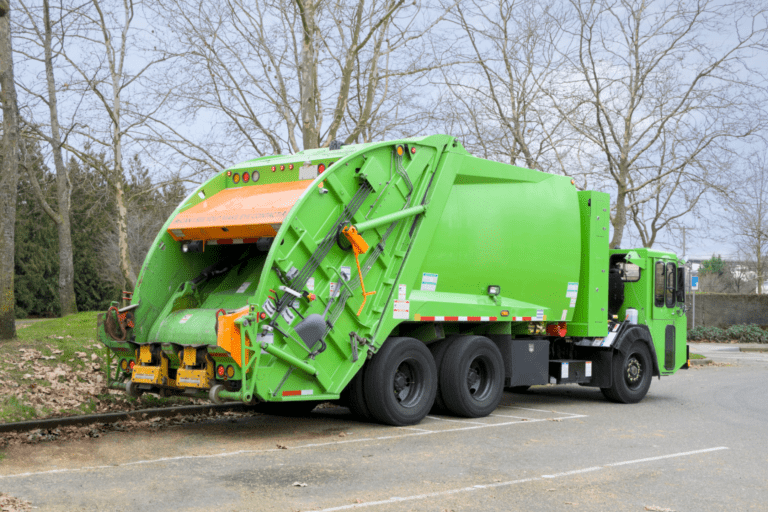This year’s Roadcheck Week will take place from May 16th- May 18th on major highways, so now is the best time to prepare. The best course of action is to begin performing internal inspections and taking care of any vehicle maintenance in preparation. However, remember that vehicle and driver safety should be prioritized all year round. Roadcheck week is just a reminder of how to keep vehicles in safe operation and Roadcheck Week is an opportunity for enforcement and regulators to gather more data on specific compliance issues across the industry. That being said, there are several factors to consider for Roadcheck Week and drivers should know what to expect on May 16th-18th.
The Purpose of Roadcheck Week
Educating drivers and fleet managers is extremely important to preventing collisions and accidents on the road. Knowledge is the power to keep everyone safe and keep the economy flowing through transportation. The purpose of Roadcheck Week is not to scare drivers and carriers; the purpose of Roadcheck Week is to allow drivers and fleet companies to learn. The inspections during the week will be conducted by CVSA-certified inspectors in Canada, Mexico, and the United States. This year’s International Roadcheck Week emphasizes anti-lock braking systems (ABS) and cargo securement. The goal is to bring awareness on how the breaking system can prevent accidents and keep drivers in control over their vehicles as well as the importance of proper cargo securement.
Understanding Inspection Levels
There are multiple inspection levels, but drivers and fleet managers need to understand Level I for Roadcheck Week. Vehicles will be inspected by CVSA-certified inspectors. Vehicles will likely receive a level I inspection on Roadcheck Week. Level I inspections are classified as the North American Standard Inspection. Level I inspections evaluate the vehicle and the driver. Inspectors will conduct a thorough inspection of the vehicle to make sure the vehicle is safe. The inspection also checks driver safety. The driver will need to be able to provide hours of service and will be checked for substance abuse.
- Level I: North American Standard Inspection
- Level II: Walk-Around Driver/Vehicle Inspection
- Level III:Driver/Credential/Administrative Inspection
- Level IV:Special Inspections
- Level V:Vehicle-Only Inspection
- Level VI:North American Standard Inspection for Transuranic Waste and Highway Route Controlled Quantities (HRCQ) of Radioactive Material
- Level VII:Jurisdictional Mandated Commercial Vehicle Inspection
- Level VIII: North American Standard Electronic Inspection
What Happens if a Vehicle does not Pass Inspection?
Failure to pass an inspection on Roadcheck Week can have several consequences. The most immediate result of the failing inspection is vehicles being put out of service by the officer. The driver would be prohibited from operating the vehicle until repairs are made and the vehicle is in safe operating condition. Drivers whose vehicle passes a level I or level V inspection will receive a CVSA decal indicating the vehicle passed inspection. The CVSA decal will be valid for three months after the inspection This decal prevents further Level I inspections from being carried out on that vehicles for the rest of the remaining quarter, so it is a big incentive for carriers and their drivers to strive for a ‘clean’ inspection during Roadcheck.
Anti-Lock Braking System (ABS)
ABS will be a highlight of this year’s Roadcheck week. ABS systems have sensors that monitor the speed of each wheel and control valves to modulate the brake pressure on each wheel independently. ABS prevents the wheels from locking up and allows the driver to maintain steering control during hard braking. Drivers should become knowledgeable about ABS to further increase their driver safety. For example, drivers must not pump the brake to let the ABS do its job and ABS systems need regular maintenance. Before leaving on a trip it is important to conduct a pre-trip inspection to check for issues in braking and other features that could affect vehicle safety. This year’s Roadcheck week will emphasize the importance of ABS for driver safety.
Cargo Securement
Cargo Securement can be slightly complicated because the regulations vary depending on the type of cargo being transported. Drivers and fleet managers must be knowledgeable about the laws and regulations regarding cargo securement, especially the cargo the driver is transporting. For driver and road safety, the driver must be educated before transporting cargo because someone could get seriously injured or even die if an accident occurs. From an economic standpoint, the driver and carrier could also face serious lawsuits and financial consequences if the cargo is not secured properly. Fleet maintenance software will keep a fleet prepared. Altogether, cargo securement is a very important aspect of driver safety and must be taken seriously. Obligations around regular inspections of cargo securement while on the road is also a big requirement, with digitized inspection tools providing carriers with the accountability needed to ensure this happens and to defend against potential liability or litigation.
Fleet Maintenance Software
To improve the chances of passing roadside inspections, drivers must conduct a thorough inspection of their vehicles before Roadcheck Week. In preparation for Roadcheck Week, make sure that all maintenance and outstanding defects are taken care of before starting the route. Keeping vehicles in compliance before Roadcheck Week is important to avoid failing inspections, but staying compliant with DOT regulations is critical all year round. Fleet maintenance software is a reliable resource for keeping vehicles properly maintained. Not only will fleet maintenance software ensure that vehicles pass on Roadcheck week, but fleet maintenance software keeps vehicles operating safely all year.
Whip Around is a reliable fleet maintenance software company that offers numerous features with benefits that will improve a fleet of any size. Whip Around offers scheduled fleet maintenance programs that will help keep vehicles compliant and a variety of solutions that make inspections easier. Whip Around has features that ensure that vehicles are properly maintained and inspected, along with presenting better options for reporting and inspections.
Again, make sure drivers are prepared and know what to expect for Roadcheck Week. Now is the time to lay the groundwork so that no one is surprised on May 16th- 18th. Pass any inspection at ease with fleet maintenance software. Roadcheck Week is an annual reminder of the importance of safe operations and properly serviced vehicles. However, take the stress away by keeping vehicles compliant all year round.









